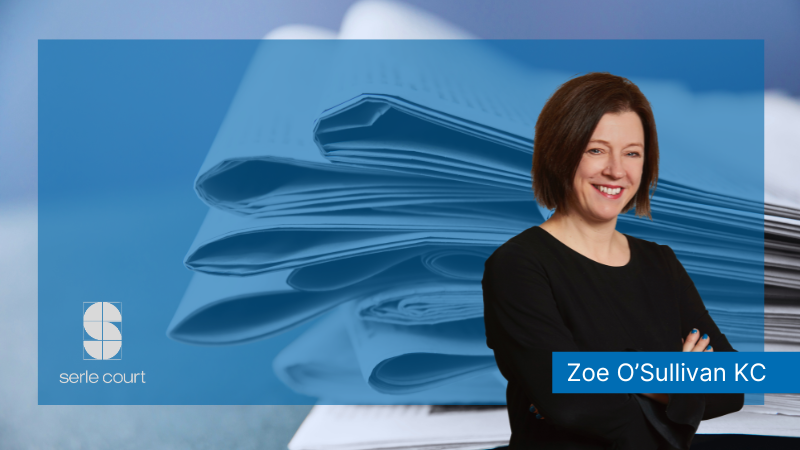Case Note by Zoe O’Sullivan: American International Group v Qatar Insurance Co DIFCA 008/2024
In American International Group UK Ltd and others v Qatar Insurance Co DIFCA 008/2024 (20 September 2024), the DIFC Court of Appeal has upheld the decision of Justice Lord Glennie that US-owned insurers would not breach US-Iran sanctions by making payment of a reinsurance claim.
The claimants were Lloyds reinsurers who reinsured QIC’s exposure under its own insurance of a UAE-based bank, covering the bank for, among other things, loss caused by the fraud of its employees. An employee of the Bank took part in a conspiracy to defraud one of its customers, Alpine, a Hong Kong company. The fraudsters were caught and sent to jail, the bank refunded its customer and claimed under its insurance with QIC. QIC paid the claim and sought to recover under the reinsurance, but the reinsurers declined to pay on the grounds that Alpine, the bank’s customer, was ultimately owned by Iranian nationals and so payment to QIC would mean that the reinsurers were indirectly providing insurance services to Iran or facilitating the provision of prohibited services to Iran. The reinsurers argued that Alpine benefited from the existence of the insurance and reinsurance cover.
The Court of Appeal, like the judge before them, had no difficulty in rejecting this argument. They held that the beneficiary of the insurance cover was the Bank, not its customers, and that the beneficiary of the reinsurance cover was QIC itself. The link to Iran was simply too remote.
For insurance lawyers, the interest in this case is the interpretation of the standard form sanctions exemption clause in accordance with DIFC law. The Court of Appeal construed the clause in the same way as the English Commercial Court in Mamancochet Mining Limited v Aegis Managing Agency Ltd [2018] EWHC 2643 (Comm), holding that it required a fact based inquiry as to whether paying the claim would expose the insurer to sanctions and not simply to a risk of sanctions. The clause is not concerned with hypothetical possibilities but with actual claims.
The broader interest of this case lies in the Court’s comments about the nature of the exercise which the Court conducts on an appeal against findings of foreign law. The Court reaffirmed that where the appellant argues that a finding of fact is wrong, the court must ask whether the judgment can be said to be “plainly wrong”, “rationally insupportable” or a decision that “no reasonable judge could have reached”: see Gate Mena DMCC (formerly known as Huobi OTC DMCC) v Tabarak Investment Capital [2023] DIFC CA 002 (13 June 2024).
Findings of foreign law are regarded by DIFC and English law as findings of fact. However, the Court said that the standard of review is not the same as that which is generally applied to findings of fact. The standard is that which applies to a question of law, namely whether the decision is wrong in the sense that the Court concludes, properly informed of all the relevant considerations, that there is an error of law. This is a lower standard than applies to ordinary findings of fact.
Zoe O’Sullivan KC, instructed by Fussell & Co, represented Qatar Insurance Co.





